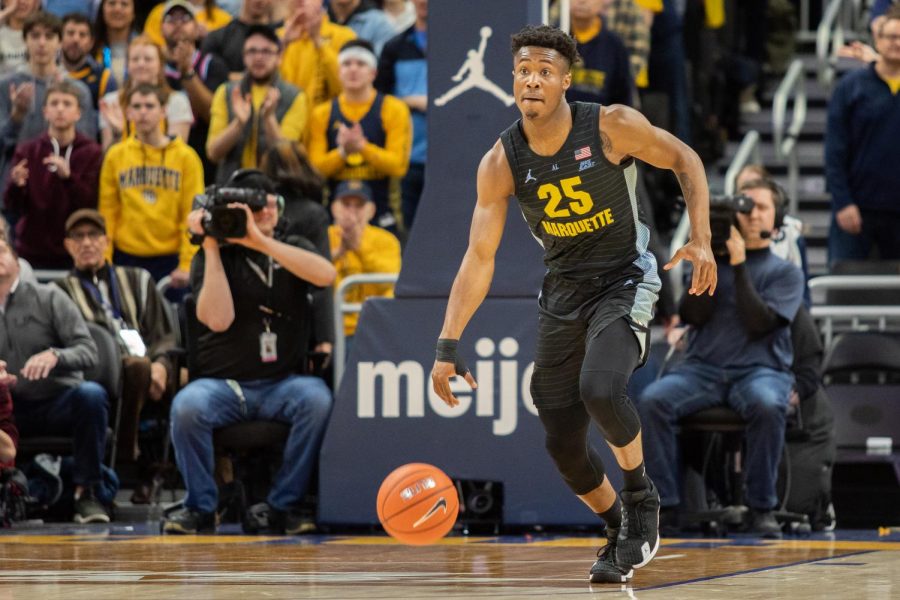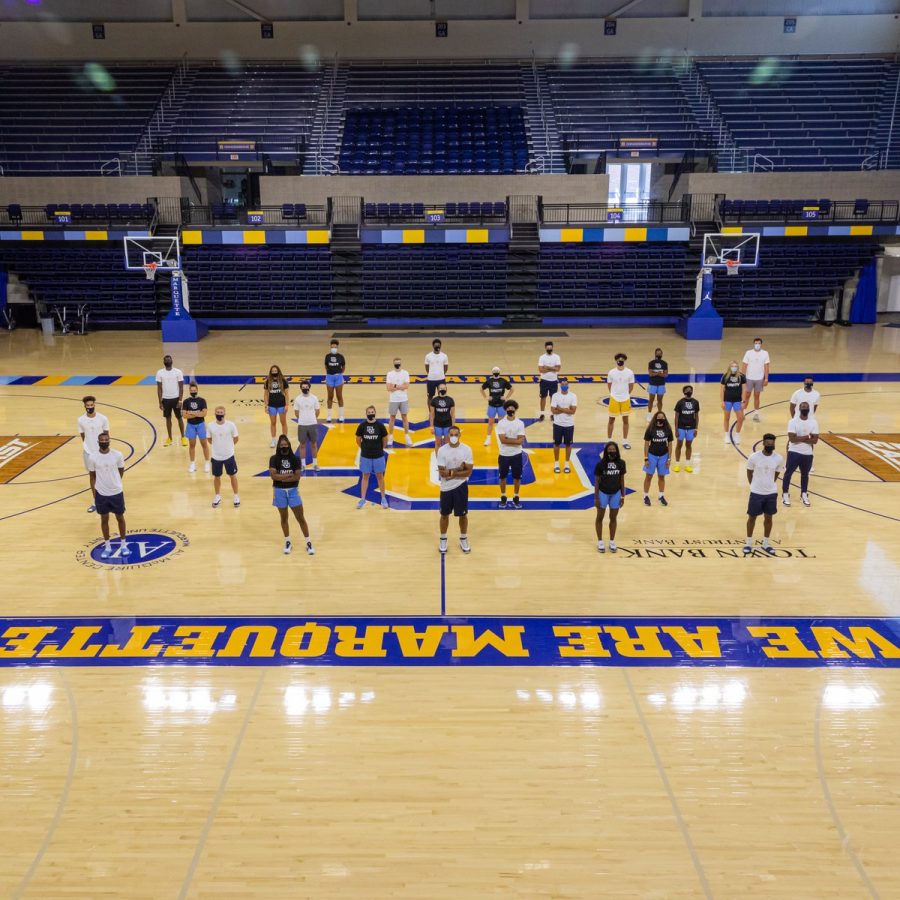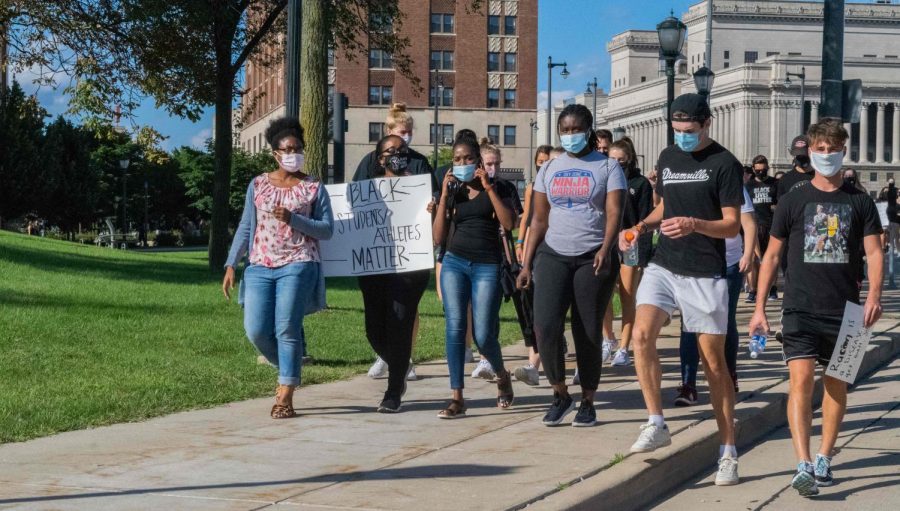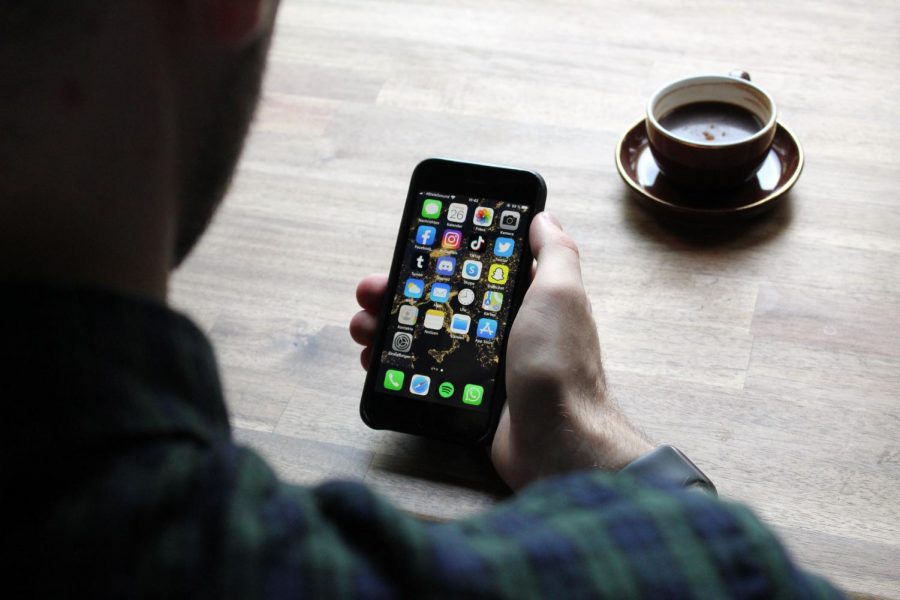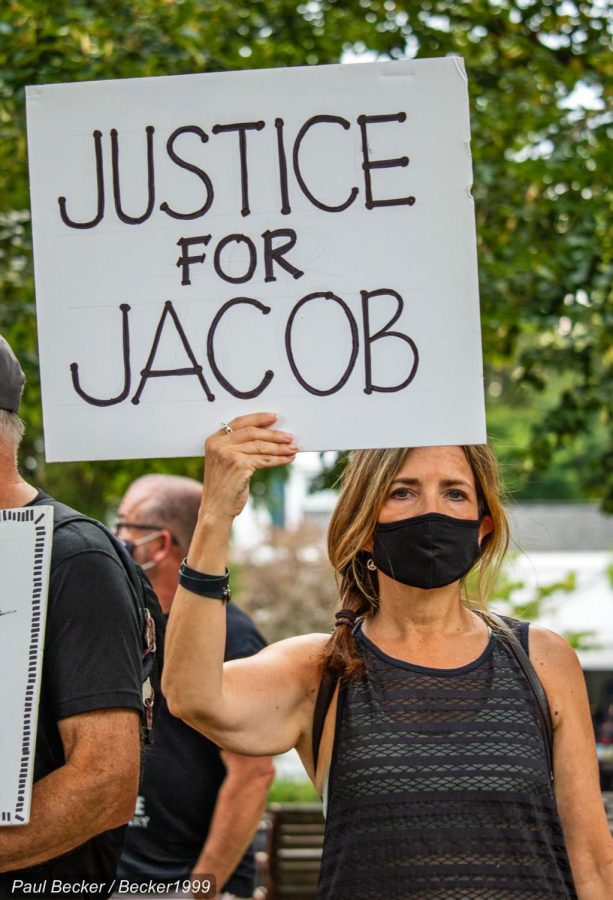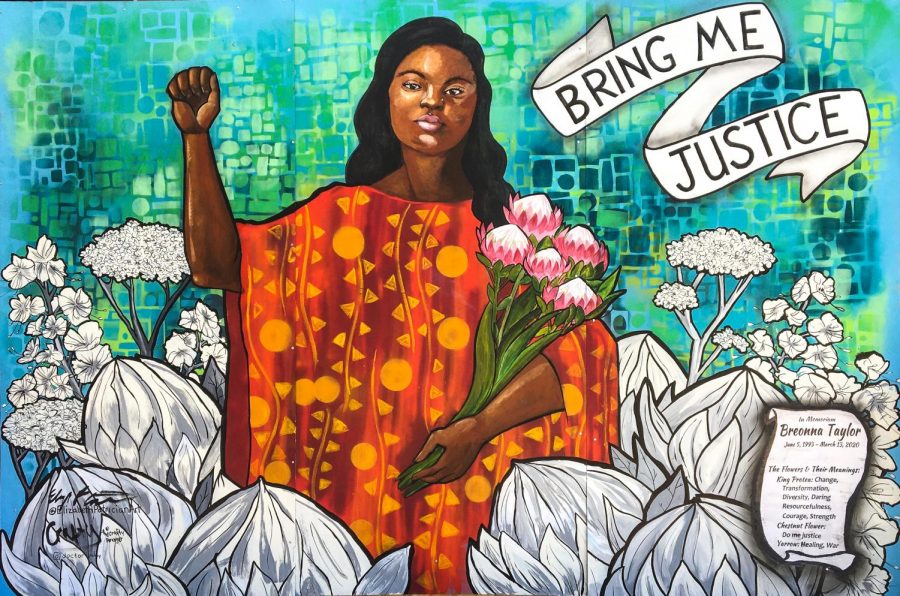For many years, sports have been used as an outlet to escape politics. After numerous acts of social injustice this year, athletes have used their platform to intertwine sports and politics more than ever.
When George Floyd was killed in Minneapolis to May 25, people have made their voices heard through the through the Black Lives Matter movement. To show support of the movement, some professional athletes have continued to protest by kneeling to show racial inequality and police brutality during the national anthem. NBA and NFL players have also been shown to have “BLM” stitched on their uniforms.
Sports are one of the many pastimes enjoyed at Marquette. However, there have been many different views on whether it is appropriate to mix political passion with athletics. The lenses that people see through tend to differ from person to person.
“Sports are still an escape for me,” Joe Sernette, a first-year in the College of Business Administration, said. “When I watch sports I don’t think about politics. I just sit down, ease my mind and watch the game.”
When sports are used as a political platform controversies arise. The idea of mixing sports with politics used to be frowned upon, but during current time people are seeing the mesh of both sports and politics to be normalized.
“It’s good the athletes are using their platform for something bigger than the game as long as it doesn’t get in the way of the actual sport,” Dylan Cardoza, a first-year in the College of Engineering, said.
Mixing the two subjects makes the sporting event more than just a game. The mixture of the two can have the effect of either turning away fans or, inversely, attracting additional fans.
“Mixing both sports and politics can either be productive or bad. It all depends on the balance between the two,” Max Aberman, a first-year in the College of Engineering, said.
Finding the right balance between the two without offending anyone is the major challenge. Making the game seem more political than about the sport or more about the game with too little politics is difficult to do.
Despite COVID-19, some NFL stadiums in the United States have allowed a limited number of fans in. These stadiums include Arrowhead Stadium, home of the Kansas City Chiefs, NRG Stadium, home of the Houston Texans, and FirstEnergy Stadium, home of the Cleveland Browns.
With the reduced amount of fans, it becomes more obvious when fans demonstrate their political stance during the event. This can also occur with fans who are watching from home.
“Even though I don’t watch sports much, when I do, I see people holding up signs, starting political chants, and waving banners. I do not see sports as a political escape anymore.” Malia Olson, first-year in the College of Engineering, said.
For some fans, all of the political activity distracts from the game and sports no longer a getaway.
Athletes displaying their political feelings are becoming a new trend that will more than likely be seen in future sports.
As the First Amendment encourages freedom of speech, athletes believe they are correctly embracing their right to represent their views. Athletes have become more popular because of this, but yet others have been scrutinized. One example of this is former quarterback for the San Fransisco 49’ers, Colin Kapernick
“Athletes should use these platforms to deliver messages (and) to speak on what they want to speak on,” Brendan Burke, a sophomore in the College of Communication, said.
Social media has also politicized the sporting arena. Fans love to follow athletes on social media and want to know what is going on in their lives. During the pandemic, many sporting events had been canceled or delayed, so people have spent more time following athletes’ social media presence as opposed to their games.
“FLORIDA: SPREAD THE WORD! You can still register to vote until 7 PM TONIGHT (10/6)! The voter registration deadline is now extended after the site crashed yesterday, so get out there and get registered to vote now! registertovoteflorida.gov/home,” Dwyane Wade, a former Marquette basketball player and Miami Heat player, tweeted Oct. 6.
Sydney Waterfield, a first-year student in the College of Nursing, feels “sports aren’t an escape anymore. Many athletes post a lot of information on social media, and those posts sometimes aren’t always about sports.” When athletes’ posts become political, social media is no longer one of the escapes from sports.
“Sports is not an escape to get away from social injustice because it is a fixture in it,” sophomore Brendan Burke in the College of Communication said. “Sports used to be an escape from everyday life. You can watch the game for three hours, and you just think about the game.”
This story was written by Matthew Valente. He can be reached at matthew.valente@marquette.edu.

